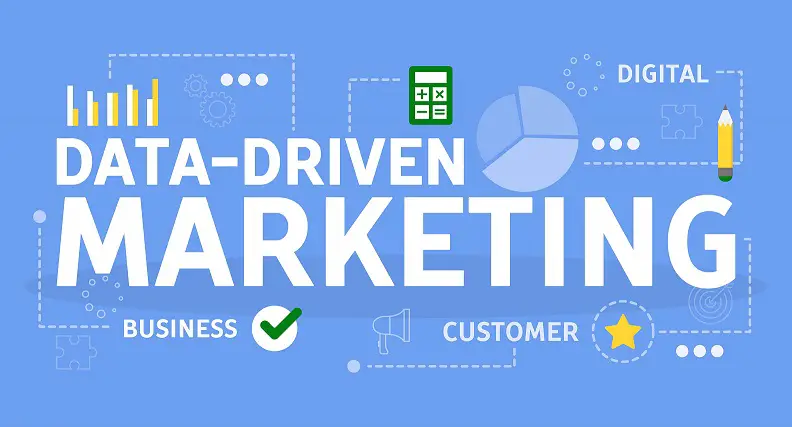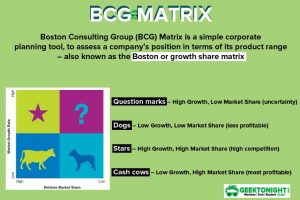Data is playing a significant role in businesses as it helps managers and owners design better processes, study and optimize trends, and understand customers more, among other things. Business-to-business (B2B) sellers also use data to improve their operations, especially in designing their marketing strategies.
Table of Content

The success of any marketing strategy lies in the process of designing, training marketers, and identifying the proper channels to market your products. All these are possible by collecting and analysing data because data drives marketers to identify opportunities and challenges they missed before. These insights by data help achieve revenue marketing by focusing on those areas that optimize resources to achieve revenue growth.
This is only a part of the many roles of data that B2B marketers can utilize and run effective campaigns.
Why Data Is Important In B2B Marketing
B2B is one industry that may have been slow in jumping into the big data world. This is because data wasn’t considered to play any significant role in B2B. However, this isn’t true since in the marketing department, data has a lot to offer.
Here are some of the roles data can play in B2B marketing:
- Identifying The Right Audience
- Predicting Trends And Preparing For Them
- Better Customer Acquisition And Retention
- Creating Fresh Content
- Evaluating Marketing Performance
Identifying The Right Audience
The market out there is big for any business to prosper. This also applies to B2B sellers who are targeting other firms. However, this doesn’t guarantee that your B2B will get customers. This is because when you try getting customers without identifying those who suit your profile, you’ll waste resources on leads that won’t be converted to buyers.
In contrast, data can help you create a customer profile and work with it. The customer profile is a mock profile of how you expect your potential customer to look. These include their demographic details, the business they’re into, and their behaviour. The only way you can create a perfect profile is through garnering enough data from your past clients or your competitors.
After building the ideal customer profile, you can then focus on those people who match the profiles. This allows you to channel all your resources to the right audience rather than the general market.
Predicting Trends And Preparing For Them
Staying ahead of the group is beneficial for B2B marketers as they can prepare and make plans on their inventory and other resources to meet the demand of the season. For example, if you expect a high selling season, you can restock your business, train your workers, or recruit new members. By doing this, you can take advantage of the opportunities that’ll come up then generate more revenue.
However, you can’t blindly predict events in the market as you can either come up short when the demand is high or overstock your inventory when the demand is low. So, to avoid this, you should embrace the use of data in your B2B. First, your marketers can try and understand the consumer behaviour of your customers, then align products to meet these behaviours; when the demand is low, the supply should reduce.
Second, data can help your marketers know which channels to use to market products. For example, many youths are likely to spend time on social media. Therefore, using this trend, B2B marketers can design strategic social media campaigns.
Better Customer Acquisition And Retention
When B2B marketers set out to market their products, they not only want to acquire many new customers; instead, they’re looking to turn them into return customers. Customer acquisition is only the first step of creating a relationship with your customers, but retaining them ensures you cut your marketing costs by a significant percentage.
When you have enough data, you know the leads to target and how to approach them to turn them into buyers. You can also identify long-term clients who’ve been in the business with you and then make them buy your new products. When dealing with return clients, you can send appreciation messages for them to feel connected to the business and increase your chances of turning them into loyal buyers.
Creating Fresh Content
Digital marketing isn’t a new thing to most businesses. In B2B, content marketing can be used to generate leads for your business through social media and content blogging. For this type of marketing to be successful, you’ll have to optimize your website on search engines so it can get noticed by visitors, leading to click-throughs and conversions.
Search engine optimization (SEO) partly depends on the content you’ve created. Your website needs to be active with relevant content before it’s ranked. However, generating these is often a problem for many marketers. Data helps lessen the burden of B2B sellers looking for relevant content all the time.
You can use customers’ feedback, surveys, advice, video and audio clips, and reviews to create authentic and fresh content. This type of content is special because it’s user-generated, meaning it directly addresses the issues users are looking for.
Evaluating Marketing Performance
Marketing is a learning opportunity for marketers as they get to lay strategies, execute them, take the wins, and learn from the failure. That’s why it’s essential to document all the marketing campaigns your team will have because it’ll act as a good reference point for future campaigns.
That’s another role of data in B2B marketing. You collect meaningful data from your customers, the conversion rates from the different marketing channels, and potential areas you can exploit. You can then evaluate if the performance met the marketing goals you had set. Most digital marketing methods help you measure your performance easily, and you can determine whether you’re failing or not.
A good analysis of your marketing performance will help you decide to stick to that strategy or change it in the future.
Conclusion
Marketing is moving to more intelligent-based strategies, making it difficult for businesses that don’t depend on data to compete. B2B needs data to know what they’re doing and the steps they should take, starting from lead generation to performance evaluation.
The data is there as customers will leave reviews, and your business will also store most of it from its past campaigns. Therefore, the B2B marketers have to take and use it. Because it plays a crucial role in marketing, your competitors will likely use it, and so should you.
Marketing Management
(Click on Topic to Read)
- What Is Market Segmentation?
- What Is Marketing Mix?
- Marketing Concept
- Marketing Management Process
- What Is Marketing Environment?
- What Is Consumer Behaviour?
- Business Buyer Behaviour
- Demand Forecasting
- 7 Stages Of New Product Development
- Methods Of Pricing
- What Is Public Relations?
- What Is Marketing Management?
- What Is Sales Promotion?
- Types Of Sales Promotion
- Techniques Of Sales Promotion
- What Is Personal Selling?
- What Is Advertising?
- Market Entry Strategy
- What Is Marketing Planning?
- Segmentation Targeting And Positioning
- Brand Building Process
- Kotler Five Product Level Model
- Classification Of Products
- Types Of Logistics
- What Is Consumer Research?
- What Is DAGMAR?
- Consumer Behaviour Models
- What Is Green Marketing?
- What Is Electronic Commerce?
- Agricultural Cooperative Marketing
- What Is Marketing Control?
- What Is Marketing Communication?
- What Is Pricing?
- Models Of Communication
Sales Management
- What is Sales Management?
- Objectives of Sales Management
- Responsibilities and Skills of Sales Manager
- Theories of Personal Selling
- What is Sales Forecasting?
- Methods of Sales Forecasting
- Purpose of Sales Budgeting
- Methods of Sales Budgeting
- Types of Sales Budgeting
- Sales Budgeting Process
- What is Sales Quotas?
- What is Selling by Objectives (SBO)?
- What is Sales Organisation?
- Types of Sales Force Structure
- Recruiting and Selecting Sales Personnel
- Training and Development of Salesforce
- Compensating the Sales Force
- Time and Territory Management
- What Is Logistics?
- What Is Logistics System?
- Technologies in Logistics
- What Is Distribution Management?
- What Is Marketing Intermediaries?
- Conventional Distribution System
- Functions of Distribution Channels
- What is Channel Design?
- Types of Wholesalers and Retailers
- What is Vertical Marketing Systems?
Marketing Essentials
- What is Marketing?
- What is A BCG Matrix?
- 5 M'S Of Advertising
- What is Direct Marketing?
- Marketing Mix For Services
- What Market Intelligence System?
- What is Trade Union?
- What Is International Marketing?
- World Trade Organization (WTO)
- What is International Marketing Research?
- What is Exporting?
- What is Licensing?
- What is Franchising?
- What is Joint Venture?
- What is Turnkey Projects?
- What is Management Contracts?
- What is Foreign Direct Investment?
- Factors That Influence Entry Mode Choice In Foreign Markets
- What is Price Escalations?
- What is Transfer Pricing?
- Integrated Marketing Communication (IMC)
- What is Promotion Mix?
- Factors Affecting Promotion Mix
- Functions & Role Of Advertising
- What is Database Marketing?
- What is Advertising Budget?
- What is Advertising Agency?
- What is Market Intelligence?
- What is Industrial Marketing?
- What is Customer Value
Consumer Behaviour
- What is Consumer Behaviour?
- What Is Personality?
- What Is Perception?
- What Is Learning?
- What Is Attitude?
- What Is Motivation?
- Segmentation Targeting And Positioning
- What Is Consumer Research?
- Consumer Imagery
- Consumer Attitude Formation
- What Is Culture?
- Consumer Decision Making Process
- Consumer Behaviour Models
- Applications of Consumer Behaviour in Marketing
- Motivational Research
- Theoretical Approaches to Study of Consumer Behaviour
- Consumer Involvement
- Consumer Lifestyle
- Theories of Personality
- Outlet Selection
- Organizational Buying Behaviour
- Reference Groups
- Consumer Protection Act, 1986
- Diffusion of Innovation
- Opinion Leaders
Business Communication
- What is Business Communication?
- What is Communication?
- Types of Communication
- 7 C of Communication
- Barriers To Business Communication
- Oral Communication
- Types Of Non Verbal Communication
- What is Written Communication?
- What are Soft Skills?
- Interpersonal vs Intrapersonal communication
- Barriers to Communication
- Importance of Communication Skills
- Listening in Communication
- Causes of Miscommunication
- What is Johari Window?
- What is Presentation?
- Communication Styles
- Channels of Communication
- Hofstede’s Dimensions of Cultural Differences and Benett’s Stages of Intercultural Sensitivity
- Organisational Communication
- Horizontal Communication
- Grapevine Communication
- Downward Communication
- Verbal Communication Skills
- Upward Communication
- Flow of Communication
- What is Emotional Intelligence?
- What is Public Speaking?
- Upward vs Downward Communication
- Internal vs External Communication
- What is Group Discussion?
- What is Interview?
- What is Negotiation?
- What is Digital Communication?
- What is Letter Writing?
- Resume and Covering Letter
- What is Report Writing?
- What is Business Meeting?
- What is Public Relations?
Business Law
- What is Business Law?
- Indian Contract Act 1872
- Essential Elements of a Valid Contract
- Types of Contract
- What is Discharge of Contract?
- Performance of Contract
- Sales of Goods Act 1930
- Goods & Price: Contract of Sale
- Conditions and Warranties
- Doctrine of Caveat Emptor
- Transfer of Property
- Rights of Unpaid Seller
- Negotiable Instruments Act 1881
- Types of Negotiable Instruments
- Types of Endorsement
- What is Promissory Note?
- What is Cheque?
- What is Crossing of Cheque?
- What is Bill of Exchange?
- What is Offer?
- Limited Liability Partnership Act 2008
- Memorandum of Association
- Articles of Association
- What is Director?
- Trade Unions Act, 1926
- Industrial Disputes Act 1947
- Employee State Insurance Act 1948
- Payment of Wages Act 1936
- Payment of Bonus Act 1965
- Labour Law in India
Brand Management









